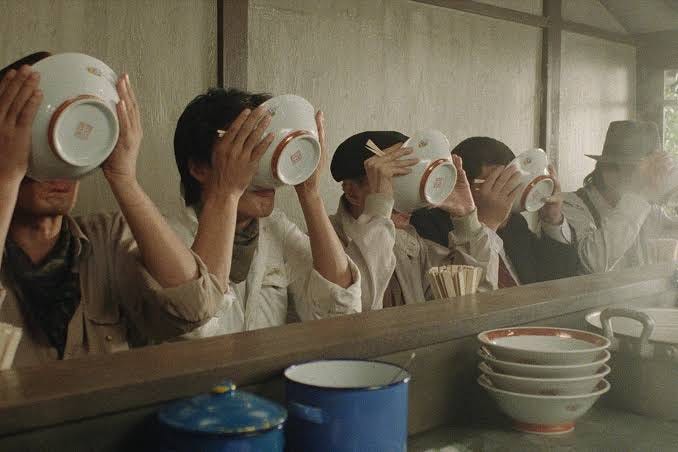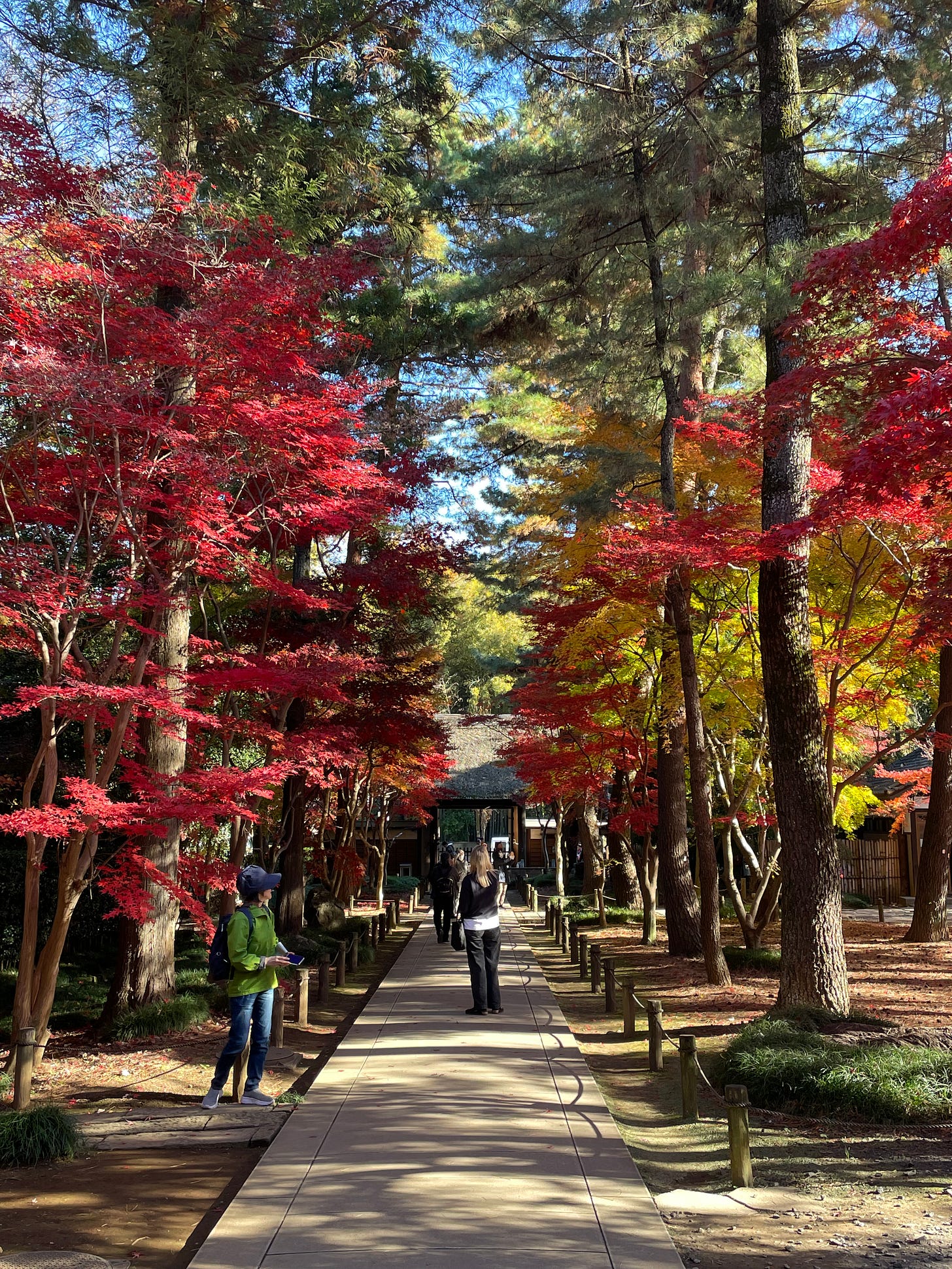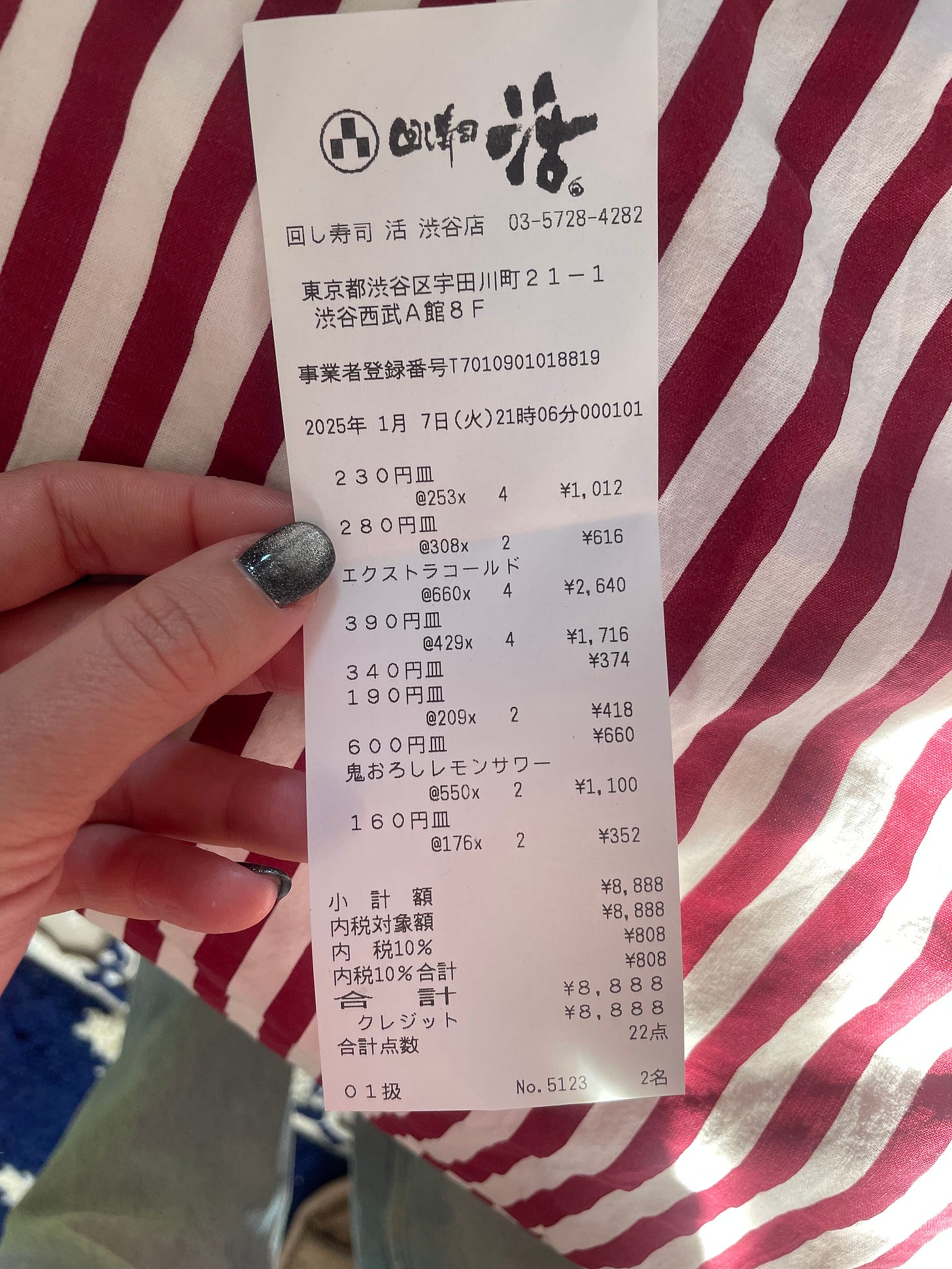Writing about ____
For the first post of 2025, I practiced writing about a place. For me Tokyo. Then it turned into writing about people. What's the diff?
Hi ya everyone :) Happy 2025. I’m currently teaching Astray winter classes and it’s yet again a beautiful pack of people with great minds. last summer, we did a class on writing about Japan and explored some writings about place. This time, I wanted to write what’s close to home for me and see what sort of writing it turns out when I think of place. It turns out, my take on place is about the people and the conversations that surrounds the place and time. enjoy x Before we get into it, here are 3 things I read, watched recently. In 2025, I’m going to start paywalling things that I think will be valuable. (In the name of gatekeeping, I have reasons)
It feels a bit old to talk about cancel culture now, but this video by Contra Points on Cancelling was actually a fair video on cancel culture. It was created 5 years ago, but I think it still very much holds up.
Recommended by
, Sheila Heti’s Why Go Out was a great read. I love her honest and easy to relate stories.
“Why are the onions hanging outside everyone’s house?” she asked. I had absolutely no idea. She asked me because I was local, I was Japanese. When I don’t know things that seem like long lasting traditions or tricks and hacks that only locals will know or should know - I feel embarrassed. I told her, I should have probably known the answer to that but instead I just strung along the path and googled it later in the car alone.
*
“Hai, 1500 yen ni narimasu. Nihongo jyozu desune.” The taxi driver said last night. Eavesdropping on my conversation with my gaijin friend in the back seat while I smoothly navigate where to turn in Japanese. I’m used to this sort of stuff so I didn’t respond to his comment immediately. I just laughed. My friend also can understand Japanese so she giggles as well knowing that that sort of commentary will perhaps rile me up. When we paid, he continues with gusto, “Iya, nihonjin yori nihongo ga kirei. Sugoi ne” and that’s where I had to interject. “aaah hai. Nihonjin nanode. haha” then he said, “ah, sounano? soudayone. ahaha Shitsurei shimashita. Hai, arigato gozaimashita.” He said my Japanese is kirei than a Japanese person. While I will entertain the idea that he thought I was a gaijin, (jokes on him) I didn’t know how to feel. My Japanese is kirei huh. In this context, this meant that it was used properly, clean, even beautifully maybe. I can thank my parents and my education for that. But on the other hand, I guess my life long question of “is it okay to just be both?” was answered there. I guess I can’t be both gaijin and Japanese at the same time. I guess I have to be either a gaijin or Japanese. But… what if that’s just not the case? What if I am Japanese and I think like a Japanese person and act like one but in parts I sometimes feel like a gaijin and I talk like a Japanese person when I speak Japanese but I also talk like an American with hand gestures but I also want to mix it up and use both sometimes!
I can see how it can be confusing to some, sure.
*
“Are those trees dead?” An older gentleman who was the head of the costume department traveling from the states for a tv shoot said this to me in the car. “What? What tree” and I looked up and it was the most beautiful maple tree changing its leaves to bright golden crispy yellow. Granted, some leaves were browning a bit - Christmas was right around the corner and winter was almost in full force. But still. Yellow leaves during November and December could only mean leaves are changing colors, never dead. I later on had to think about this. Maybe his eyesight isn’t as great. He is 75 years old after all. But still, that didn’t feel like a good enough explanation for someone to say, a tree looks dead when to most of us, it looks beautiful. The Global North might not have an intimate relationship with seasons as much as we do here in Japan. Seasons signals different sensory. Seasons tell us what to eat next. Seasons tell us what to smell. In our haiku, the rule is to incorporate kigo - seasonal language or else it’s not a great haiku. Last summer, a boy who was probably in 5th or 6th grade on his bike with his friends said “my little brother is at this park now doing hanabi.” It was peak summertime. Even at night, it’s sticky and there’s no breeze. There’s no such thing as escaping the summer in Tokyo unless you are running back indoors or a chilled air conditioned conbini. But then there’s hanabi. Running around, laughing and screaming how fun it is in the heat is somehow bearable. Lower your bum to the ground and bet with your friends who’s senko hanabi will last longer. Hanabi feels counterproductive when you are just hot and miserable. Who wants to stay still in the heat around fire? Who wants to run around and sweat profusely even more when you are already sweaty? But somehow, our relationship to seasons is sacred. Sacred enough that we must preserve our traditions. Sacred enough that our eyes and all senses are wide open when change happens.
*
It’s hard to become friendly with someone in Japan. At least I don’t think it’s as common for everyone to be smily when passing each other on the streets. I’m familiar with the people who work at my local conbini and supermarket but I would never dare to think to spark up a conversation. A lady at my local supermarket who stocks the vegetable section is my favorite of the whole bunch. She’s so efficient and knows exactly how to place each vegetable and fruit on display so us common people can rummage through it. One day I caught her speaking to herself, or maybe she meant to have someone react to her comment. She was taking the bananas out and placing them as usual and she said, “What? We can’t put these out right? Their green.” I looked at the bananas and yes she was absolutely right. Compared to the other bananas already out, they were comically not yet ready to eat bananas. I should have said something like “Oh yeah haha you're right!” or whatever to be the receiver of her comment, but instead I ignored her. I ignored her like a true Japanese. But this doesn’t mean that we just ignore each other all the time. Strangers can laugh at each other's jokes too, if we dare to embrace being ever so vulnerable. My partner and I had kaiten sushi the other day and our waiter was hastily telling us that we need to leave soon. Our 2 hour limit was up. He was naturally speaking to us in English holding an English sign that said, “2 hours only” or something passive aggressive. We got up and went to go pay our bill and our waiter was going to ring us up. I was too busy looking down at the bottom of my purse where most of my shit goes and grabbing my wallet out and then my partner with much exhilaration said, “LOOK! It’s 8,888 yen!” and then I replied, “Oh yeah true.” He then continued with more contentment, “It’s your lucky number!” He was admittedly a little too excited by the bill, but I admit; I love him because he gets excited with little things in life. I was going to pay by card and once I tapped my card, our waiter dude told me to punch in my 4 digit number. Then my ever so funny partner said, “Ohhh Ahhh ansho bango wa, 8888….” Instant joyous laughter from our waiter dude. I then did the whole Japanese comedy bit called tsukomi - which basically is like pointing out the obvious of what happened. I said, “iya, wara chateru jyan(Yo, he’s laughing)” - the most casual way of speaking to someone, a friend even. That night, just for about 30 seconds, we managed to crack a cackle from the Japanese college kid who was straight faced the whole night. My partner was sure happy hours after the event.






